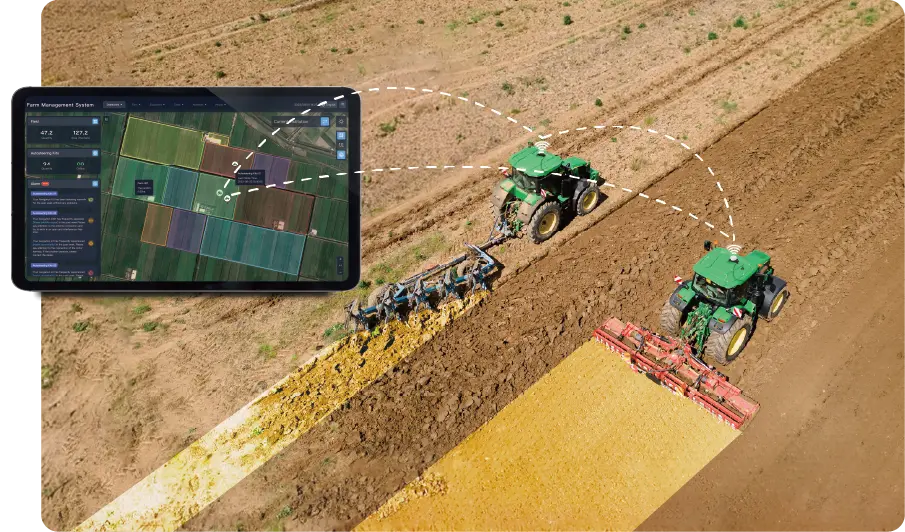
In today’s fast-paced agricultural industry, technology is no longer an option — it is a necessity. Farmers face increasing challenges, from climate change to fluctuating market prices and labor shortages. To meet these demands, many agricultural businesses and individual farmers are turning to farm management systems.
Discover moreA farm management system is a digital tool that helps farmers plan, monitor, and analyze all farm activities in one place. Whether you run a small family farm or manage thousands of hectares, a well-designed farm management system allows you to optimize resources, reduce waste, and make better decisions.
Core Functions of a Farm Management System
A good farm management system covers every aspect of farm operations. Instead of juggling spreadsheets, paper logs, and multiple apps, farmers can centralize all data and processes into one streamlined platform.
Data Collection and Analysis
Modern farms generate huge amounts of data: soil moisture levels, weather patterns, crop yields, livestock health records, and more. A farm data management system helps collect, store, and analyze this data in real time, giving you actionable insights for better decision-making.
Resource Planning and Scheduling
Efficient planning is critical in agriculture. Farm management systems enable you to schedule planting, irrigation, fertilization, and harvesting tasks. By keeping everything organized, you can ensure that nothing is overlooked, and resources are used effectively.
Inventory Tracking
With a farm inventory management system, you can keep track of seeds, fertilizers, pesticides, machinery, and spare parts. Accurate inventory management means fewer last-minute purchases, reduced waste, and cost savings.
Decision Support Tools
Some advanced platforms function as a decision support system for farm management. They use data analytics and predictive modeling to guide decisions, such as the best planting dates, irrigation schedules, or optimal harvest times.
Types of Farm Management Systems
Not all farms are the same, and different types of farm management systems cater to specific needs.
Crop-Based Systems
A farm crop management system focuses on crop production. These systems help monitor soil health, plan crop rotations, manage pests, and optimize fertilizer use. They are ideal for both small-scale vegetable farms and large commercial operations. An agriculture farm management system can also integrate with precision farming tools, drones, and sensors to ensure crops receive the right care at the right time.
Livestock and Dairy Systems
Animal farms require specialized tools to track breeding, feeding schedules, and health records. A dairy farm management system monitors milk production, animal nutrition, and veterinary care. Similarly, poultry farm management systems optimize egg production, feed efficiency, and barn conditions, while a fish farm management system ensures water quality and feeding cycles are properly managed.
Integrated Smart Farm Solutions
A smart farm management system combines crop and livestock monitoring into one platform. It connects IoT devices, weather stations, GPS-enabled equipment, and mobile apps, creating a fully integrated digital farm.
Benefits of Using a Farm Management System
Implementing a farm management system offers numerous benefits that go beyond simple record-keeping.
- Improved efficiency – Automate repetitive tasks and reduce time spent on manual data entry.
- Cost savings – Track expenses, reduce resource waste, and improve equipment usage.
- Better decision-making – Use accurate data to plan ahead and adapt quickly to changes.
- Sustainability – Reduce chemical usage, conserve water, and lower carbon footprint.
- Regulatory compliance – Maintain accurate records for audits and certifications.
Choosing the Right Farm Management System
Selecting the right system depends on your farm’s size, type, and goals.
- Features – Identify essential tools like mapping, analytics, and mobile access.
- Ease of use – Choose an interface that your team can quickly learn.
- Integration – Ensure compatibility with existing equipment, such as a farm equipment dealer management system.
- Scalability – Pick a system that can grow with your business.
- Cloud vs. offline – An online farm management system offers remote access, while offline systems may be better for areas with poor internet.
How FJDynamics Farm Management System Stands Out
The FJD Farm Management System is designed for farmers who want a powerful yet easy-to-use solution. Whether you grow crops, raise animals, or manage both, our platform helps you streamline every aspect of your operations.
Key Features
- Real-time data monitoring
- Cloud-based platform accessible from anywhere
- Integration with GPS-guided farm machinery
- Comprehensive reporting and analytics
- Support for both crop and livestock management
Unlike generic software, the farm management system FJDynamics is built with farmers in mind. You do not need to be a tech expert — the system is intuitive and designed for everyday use.
How to Implement a Farm Management System
Introducing a farm management system to your farm requires planning.
- Assessment – Identify your farm’s pain points and priorities.
- Setup – Install software and connect it to your existing devices.
- Training – Ensure that all staff members understand how to use the system.
- Integration – Sync the platform with your equipment, including any farm equipment dealer management system tools.
- Data migration – Transfer historical farm records into the system for a complete overview.
Future Trends in Farm Management Systems
The future of farm management systems is exciting, driven by advancements in technology.
- Artificial intelligence – AI-powered analytics will improve predictions for yields, pest outbreaks, and optimal planting times.
- IoT integration – Sensors will collect even more precise data on soil, weather, and livestock conditions.
- Sustainability tools – Systems will help farms become more environmentally friendly by tracking carbon emissions and resource usage.
- Mobile-first platforms – Farmers will manage operations entirely from smartphones or tablets.
Final Thoughts
A farm management system is more than just software — it is a strategic investment that can increase efficiency, profitability, and sustainability. From farm crop management systems to poultry farm management systems, digital tools are transforming how farms operate.
If you are ready to make the shift to smarter farming, the FJD Farm Management System offers everything you need in one powerful platform.
Our latest product
Shop online at FJDynamics!